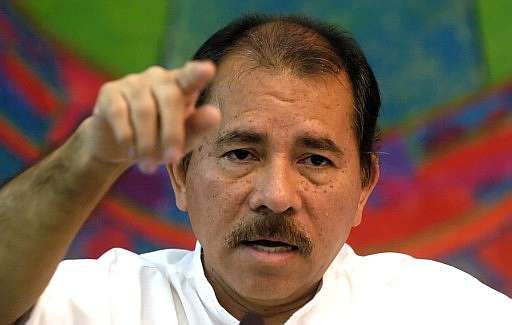
Nicaraguan President Daniel Ortega stated early his allegiance was with the late Hugo Chavez and his chosen heir Nicolas Maduro, newly appointed president of Venezuela.
After Maduro's win in the last election, Ortega sent two letters of congratulations.
"Our salute and our support for compañero Nicolás Maduro, who I am sure will manage well, giving continuity to the project started by our dear brother, comandante Hugo Chávez," he wrote.
Here are five key points about the Nicaraguan president:
1. He comes from a family of political dissidents
Ortega's parents, Daniel Ortega and Lidia Saavedra, were well known oposers of right-wing and nepotist Anastasio Somoza Debayle. His mother was imprisoned for having alleged coded political missives, and Ortega himself spent a while in prison for political activities.
2. He joined the Nicaraguan left when he was 15
After being released from prison, Ortega joined the then clandestine Sandinista Liberation Front, which overthrew Somoza Debayle in 1979. As coordinator of the party, Ortega became the defacto leader of Nicaragua, position that was legitimized when he won the 1984 election.
3. He was exiled in Cuba and Costa Rica
During his dissident years, he spent some years in exile in Cuba, where he was trained in guerrilla fighting. After marrying wife Rosario Murillo, the family moved to Costa Rica.
4. He is an amateur poet
Ortega penned several poems while he was imprisoned at El Modelo jail just outside of Managua. Most of them were allegories to a past time in Nicaragua, when the government was not as repressive.
5. His stepdaughter filed a complaint against him for alleged sexual abuse
In 1998, Ortega's stepdaughter Zoilamerica Narvaez released a 50-page report describing how Ortega had sexually abused her since she was 11. Both Ortega and his wife denied it. The case did not proceed in Nicaraguan courts because Ortega had immunity to prosecution, and the case exceeded the five-year statute of limitations for sexual abuse and rape charges.
© 2025 Latin Times. All rights reserved. Do not reproduce without permission.




